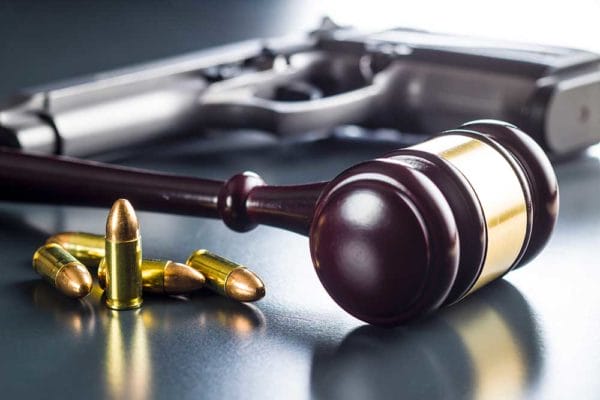
United States – -(AmmoLand.com)- One thing that can often cause a lot of heated comments and accusations of being a “Fudd” is a lack of understanding about what someone is trying to achieve – or what is possible to achieve. It can be easy for us, without everyday lives, to second-guess what is going on in a state capital or in Washington, D.C.
But much of what can be called a “win” really depends on a lot of things. Alabama passing constitutional carry is a clear-cut win, no matter how anyone views it. But what about the situation in, say, Oregon, which is far less friendly than Alabama? Victory for a Second Amendment supporter in Oregon may be more represented in what does NOT happen as opposed to what does happen.
The fact is what can be accomplished is often dictated by a lot of factors. Some of it is the composition of the state legislature. In Maryland, Larry Hogan was seen as a sellout by some, but he also faced a legislature where anti-Second Amendment extremists had a veto-proof majority. So, how was he to defend the Second Amendment? What would you do in that situation, loyal Ammoland readers?
The situation was similar in 1968 for the NRA. During that fight which lead to the Gun Control Act of 1968, Lyndon Baines Johnson called for a national licensing and registration scheme. He didn’t get it, and wasn’t happy about its omission when he signed the bill. The fact he didn’t get it was a crucial victory that many critics of the NRA miss.
Let’s look at what the 90th Congress was like, via Wikipedia. Around the time the Gun Control Act of 1968 passed in the last week of October of that year, Johnson’s party had a 62-38 majority in the Senate and a 247-186 majority in the House. Now, the parties were not as ideologically homogenous as they are today, but the political terrain was not very favorable.
Add in the assassinations of Martin Luther King Jr. and Robert F. Kennedy, and the lingering fallout from the assassination of John F. Kennedy in 1963. Calling the political climate for Second Amendment supporters “extremely hostile” is arguably an understatement. Given the lack of resources that allow Second Amendment supporters to bypass the mainstream media, and the fact that the landmark Heller decision was 40 years away, the NRA in 1968 did as well as any reasonable person could have expected.
The “win” in 1968 was stopping licensing and registration. Had LBJ gotten what he wanted in 1968, the first two “problems” Nelson Shields outlined in his 1976 New Yorker interview would have already been “solved.” With that, it would have only been a matter of time before gun owners would have been forced to weigh the decision between civil disobedience or turning in guns that were banned.
What happened in 1968 was not an ideal situation by any stretch of the imagination, but life doesn’t always give us an ideal situation to fight for our rights. If anything, deciding that the 1968 Gun Control Act was something that could be “lived with” bought time for Second Amendment supporters to mobilize and develop the grassroots army that bedevils anti-Second Amendment extremists to this very day.
Now, over a half-century since the Gun Control Act of 1968, Second Amendment supporters are in a much stronger position. The landmark Heller and McDonald cases have tossed out handgun bans. NYSRPA v. Bruen could end “may issue” carry permit laws, and multiple cases around semiauto and magazine bans are working their way to the Supreme Court. But there is no substitute for defeating anti-Second Amendment extremists via the ballot box.
About Harold Hutchison
Writer Harold Hutchison has more than a dozen years of experience covering military affairs, international events, U.S. politics and Second Amendment issues. Harold was consulting senior editor at Soldier of Fortune magazine and is the author of the novel Strike Group Reagan. He has also written for the Daily Caller, National Review, Patriot Post, Strategypage.com, and other national websites.
